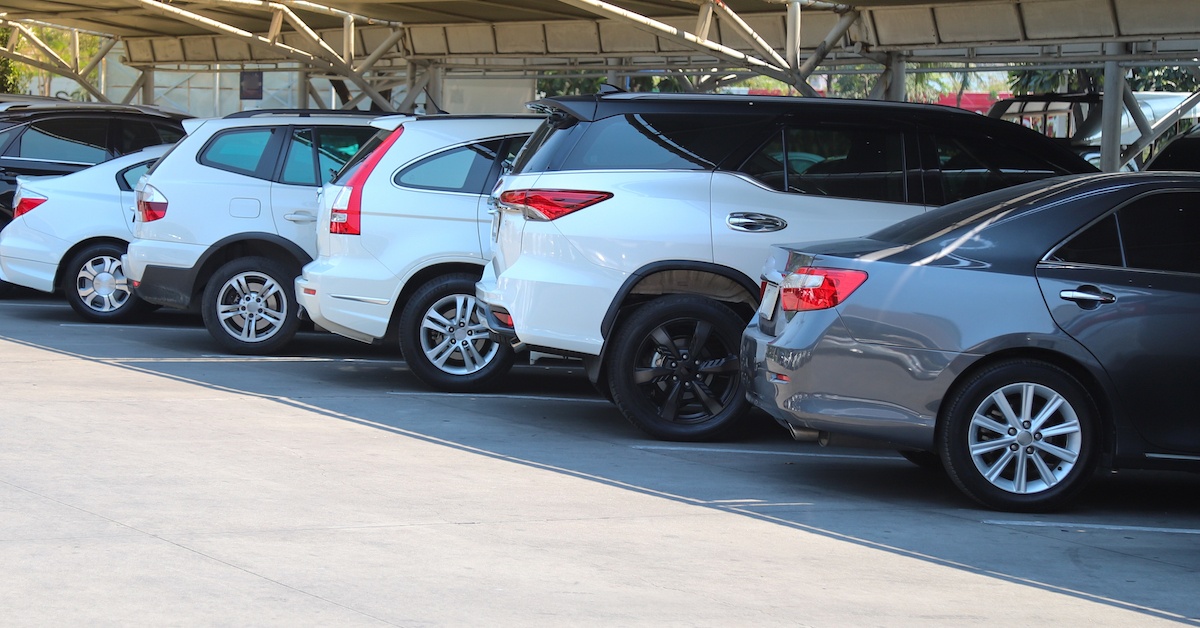A new car comes with that amazing new car smell and the knowledge that you are the first person to make it your own. But the bloom falls off the rose pretty quickly in terms of value, with your mechanical baby losing 10% of its value the very second you drive off the lot.
It will depreciate another 20% within the first year of ownership, and by three years old, that vehicle is only worth approximately 60% of what it was new.
This is a bummer for the original owner, but in truth that car still has a lot of useful life in it. Buying a used car can represent an awesome deal for the second owner. Yes, it is a stressful and confusing process. There is a lot of research to be done and then a pressure-filled purchase to make.
But done right, buying that new-to-you car will make you feel like a million bucks.

Choose a make & model
It’s never wise to buy a car without first having done your research and devised a short list of makes and models. There is a lot to know about each car, including its gas mileage, average longevity, and expected repair frequency. If you aren’t armed with this info when you hit the lot, it’s much easier to be taken in by the look of a vehicle rather than its performance.
And, scoring a great deal really comes down to being prepared. For starters, you need to know the general price range for the make, model, and year of vehicle you choose. This can be invaluable when it comes to negotiating. It allows you to spark competition between dealers, too. You might be able to get one dealer to honor a lower price on a comparable vehicle from a different lot.
Research local lots
Once you know what you want, start checking out local dealerships online to locate a few options. Negotiation is almost always part of the process, but your research can give you a nice starting point in budgeting for the purchase.
You may also find surprisingly good no-haggle deals on cars that dealers just want off of their lot. Space is always at a premium for dealers, so when new models start to come in, dealers just don’t have time to keep working on the older ones.
Time your purchase
Understanding when dealers are under the most pressure to move vehicles can give you a big advantage when it comes to negotiating. For example, by the end of the month dealers are trying to make quotas and may be more receptive to accepting a rock bottom price.
Weather can also play into timing the best deal. If you live in a cold climate, you are likely to get a great deal on a convertible during the fall and winter months. On the other hand, lots of people are looking to spend their tax refunds during April and prices tend to tick upwards during this time.
Do the test drive
Now is where all your time researching pays off – the fun part. Don’t ever settle for a quick trip around the block; you need to drive at least ten miles and cover both neighborhood and highway terrain. It’s important to gauge how quickly and smoothly the car accelerates and decelerates.
When it is safe, you should also attempt a few aggressive maneuvers like coming to a rapid stop and swerving. The last thing you want is to end up with a car that drives well under normal circumstances but can’t keep you safe in an emergency. Be sure to warn your salesperson before you do this!
Remember that you need to check this vehicle both inside and out. Open and close all the doors and windows as well as the hood and trunk. Push down hard on each corner of the vehicle to assess the shocks. Check the tread on the tires. Test the lights. You should also get down on the ground and check whether there is any fluid dripping from underneath.

Negotiate a deal
You can negotiate from a strong position when you understand the value of the car you want and have a firm budget in mind. However, it is important to strike the right tone. If you are too demanding, the dealer may not be interested in negotiating. If you appear too soft, they will see you as an easy target.
When it comes time to negotiate, be firm but polite. Make sure they know that you have done your homework and are coming from an informed position. Some salespeople will attempt to confuse you by steering the conversation away from the price of the car and into issues like financing, extras, insurance, or maintenance plans. Keep bringing the discussion back to the cost of the car itself.
If you know that the car you want has been sitting on the lot for several weeks, it can be a strong point of negotiation for you. You will also want to point out any minor flaws that turned up during your test drive and inspection. Anything that justifies the price you’re asking is worth mentioning politely.
Be ready to walk away
Sometimes, despite your best efforts, you won’t be able to strike a favorable agreement. Be ready to walk away if the dealer refuses to accept anything less than the sticker price, or if they won’t come anywhere near what you know the car is truly worth.
Sometimes you’ll get a call after a few days if the dealer hasn’t been able to sell the vehicle to someone else. If not, you can at least be grateful that you didn’t accept a bad deal.
Don’t waste your time listening to hardball sales techniques once it becomes clear that you’re not making any progress. After all, you will need to go to a new dealer and start over again, so save your energy.
The Bottom Line
Once you score a great deal on the car you really wanted, it will be worth all of the effort. Being informed about the value of that vehicle gets you halfway there, but the second half is where you apply that knowledge to arrive at a price that makes both you and the dealer happy.
It’s not easy, but if you are prepared to hold your ground, you will surely snag a great ride and incredible value for the money.